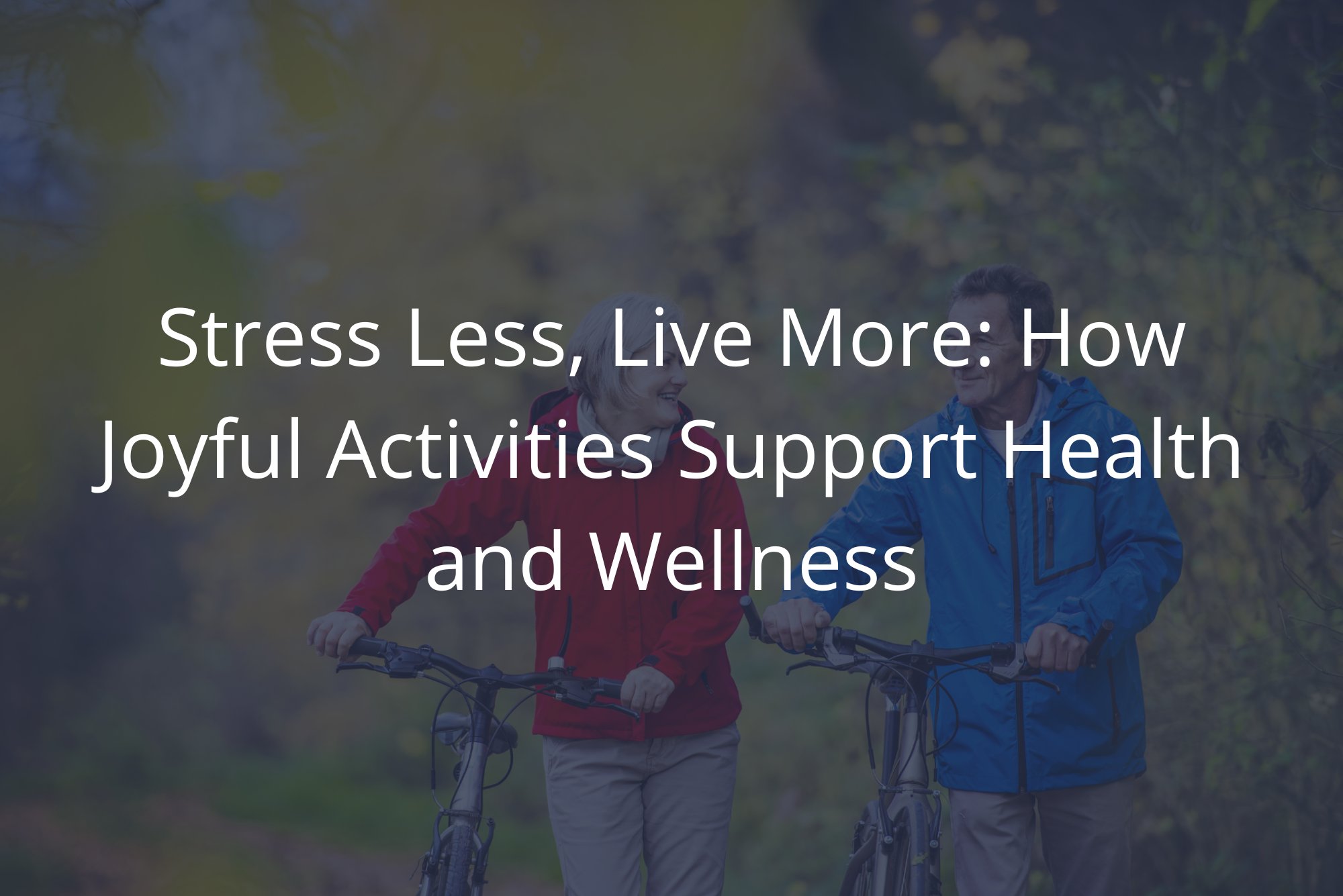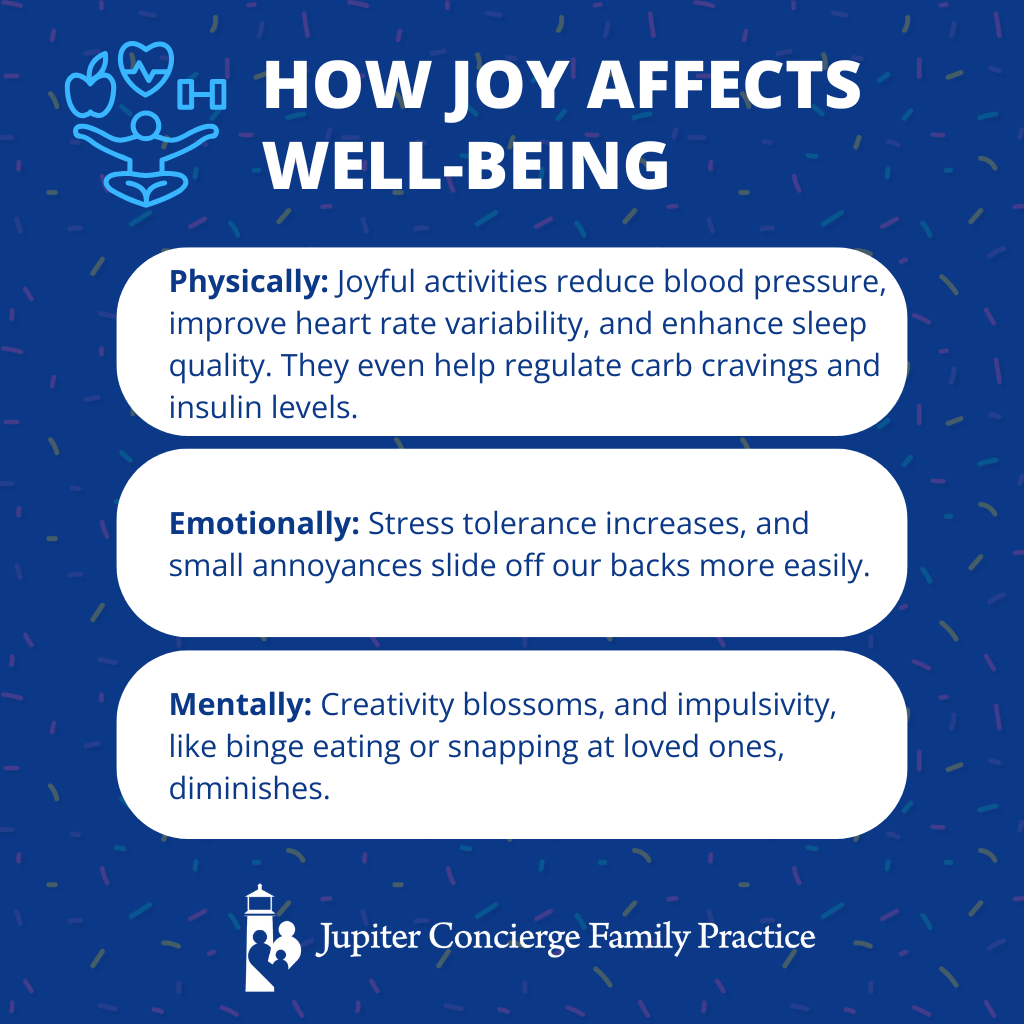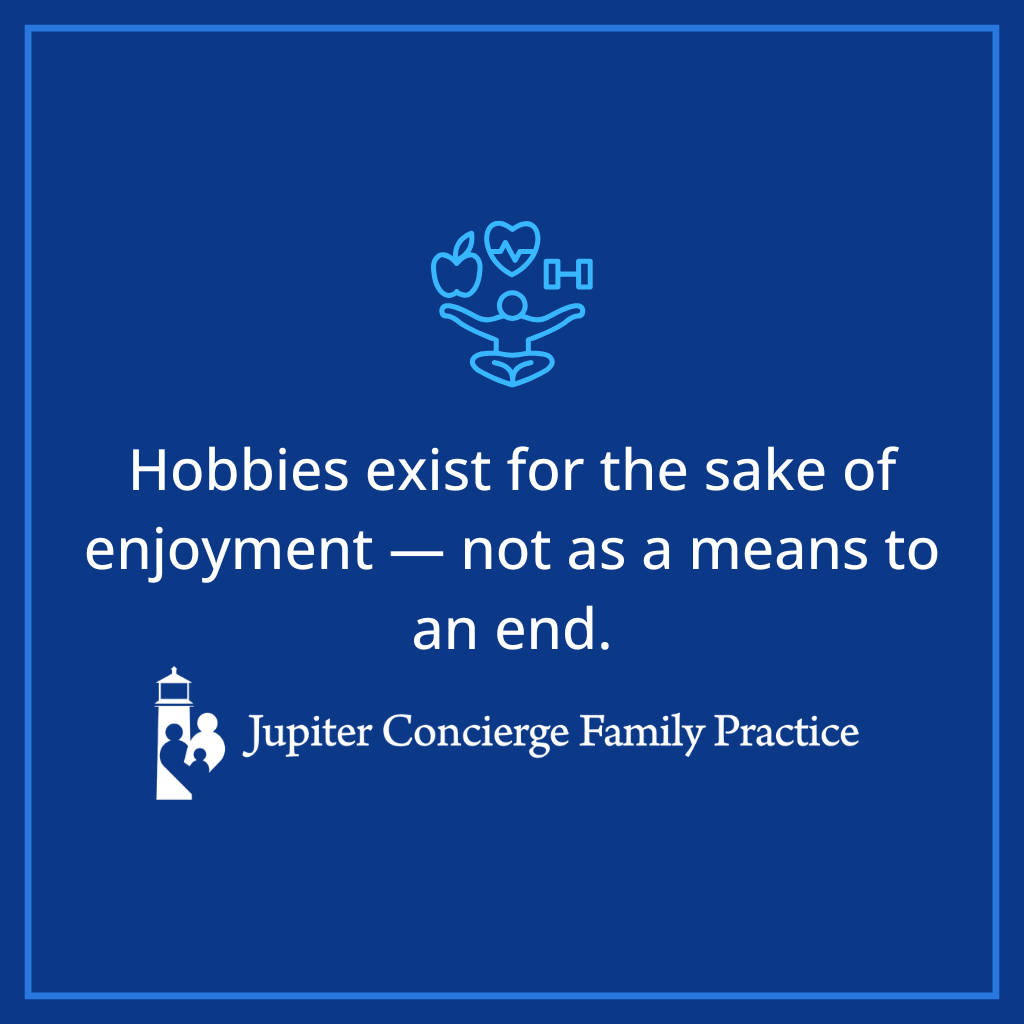
“A master in the art of living draws no sharp distinction between his work and his play; his labor and his leisure; his mind and his body; his education and his recreation. He hardly knows which is which. He simply pursues his vision of excellence through whatever he is doing, and leaves others to determine whether he is working or playing. To himself, he always appears to be doing both.” — Francois Auguste De Chateaubriand
This quote beautifully encapsulates the balance we all strive for: a life where joy seamlessly integrates with responsibility. However, in our fast-paced world, the pursuit of joy often takes a backseat.
Joy, however, is an emotion that helps us manage and eliminate stress. And since stress elimination is one of the Four Pillars of Health, it’s worth discussing how to intentionally incorporate fun stress management and elimination activities into our lives.
Why Joy Matters for Your Health
Life is about more than work, even when work is enjoyable. Yet, many of us have been conditioned to view pleasure as secondary. We juggle careers, parenting, education, caregiving, and more. In this whirlwind, we forget that joy isn’t a luxury; it’s a necessity.
Engaging in fun stress management activities, such as hobbies we enjoy, improves every aspect of our lives. This joy reduces stress and makes us happier, even improving other aspects of our lives, such as work, personal relationships, and health.
Of course, not everything in life will or should be enjoyable. We must work, pass through difficulties, and make sacrifices — but not all the time. The goal is balance.
The Ripple Effect of Enjoyment on Well-Being
When we participate in activities we genuinely enjoy, whether it’s attending a sporting event with family, reading a book alone, or creating art, our bodies respond positively. The benefits of experiencing joy ripple through our physical, emotional, and mental health:
- Physically: Joyful activities reduce blood pressure, improve heart rate variability, and enhance sleep quality. They even help regulate carb cravings and insulin levels.
- Emotionally: Stress tolerance increases, and small annoyances slide off our backs more easily.
- Mentally: Creativity blossoms, and impulsivity, like binge eating or snapping at loved ones, diminishes.
Finding Your Joy: A Practical Approach
In our ambitious culture, we may have lost sight of the true purpose of hobbies. While they can result in an improved physique or a broadened mind, these benefits are secondary. While health or intellectual benefits are wonderful side effects, hobbies exist for the sake of enjoyment — not as a means to an end.
The key to incorporating fun stress management activities is to pursue them purely for enjoyment’s sake.
Take Honest Inventory
With that in mind, consider your existing hobbies. Are they a means to an end? Do they bring you joy? Did they bring you joy previously but have lost their luster? With an honest evaluation of current activities, you can shed whatever doesn’t serve you.
Some activities may need only minor adjustments to reclaim their joy. For instance, if you’re a person who enjoys running at the gym, you may eventually find the treadmill monotonous. If so, perhaps taking your exercise outdoors will bring more joy.
Or maybe you enjoy reading as a hobby. If your favorite stories lose their draw, maybe it’s time to explore a new genre.
Even friendships might need reassessment. If certain social interactions consistently bring negativity, it’s okay to set boundaries or seek new connections that better align with your pursuit of joy.
Pursue New Hobbies
I strongly recommend pursuing a new hobby every two to three years. Opportunities abound, but what you enjoy will be highly individualized. You can try visiting your local community center to learn to play an instrument, paint, or learn a new sport. When you join others at the beginner level, you never know what unexpected friendships or lifelong interests might develop.
The key is to let joy lead. And yes, it’s okay to revise. If a hobby stops being fun, find something else that excites you.
Caveats for Balance
Not everything in life needs to be enjoyable, and not every enjoyable activity will improve your life. The goal is finding balance while being intentional about incorporating fun stress management and elimination activities into your routine.
Be mindful of when hobbies become obligations or obsessions. If you’re not enjoying a book by page 60, it’s okay to lay it aside and choose another. If your running hobby is causing joint problems, perhaps scaling back the distance will help maintain the joy while preventing injury.
Joy and Stress Management: Final Thoughts
No one dies wishing they had worked more. The regret often lies in missed opportunities for joy. Participating in activities that make us happy reduces these regrets and enriches our lives.
Fun stress management activities, whether big or small, are the bridge to a healthier, more fulfilling life. So go ahead, give yourself permission to enjoy. Start that painting, join that league, or simply take a walk in nature.
Life is short. Make it joyful.

Dr. David Rosenberg
Dr. Rosenberg is a board-certified Family Physician who obtained a BS in Chemistry at Georgia's Mercer University in 1983 and a medical degree from the University of Miami in 1988. He completed his residency in Family Medicine at The Washington Hospital in Washington, Pennsylvania, in 1991 and then practiced Emergency Medicine at Palm Beach Gardens Medical Center for two years. In 1993 he started private practice in Jupiter.
Dr. Rosenberg has been married to his wife Mary for 38 years and they have three grown children together. Some of his interests include being a huge baseball fan, sailing, snow skiing, self-development, and learning to play piano.


